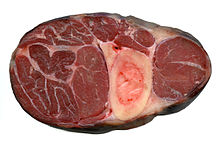
Is it der, die or das Hesse?
DER
Hesse
The correct article in German of Hesse is der. So it is der Hesse! (nominative case)
The word Hesse is masculine, therefore the correct article is der.
Context 1
German declension of Hesse?
How does the declension of Hesse work in the nominative, accusative, dative and genitive cases? Here you can find all forms in the singular as well as in the plural:
| 1 | Singular | Plural |
|---|---|---|
| Nominative | der Hesse | die Hessen |
| Genitive | des Hessen | der Hessen |
| Dative | dem Hessen | den Hessen |
| Akkusative | den Hessen | die Hessen |
What is the meaning of Hesse in German?
Hesse is defined as:
[1] A person born in the state of Hesse (Germany) or in the long run of living person
[1] ein im Bundesland Hessen (Deutschland) geborener oder dort auf Dauer lebender MenschHow to use Hesse in a sentence?
Example sentences in German using Hesse with translations in English.
[1] Er ist Hesse und seine Frau ist Westfälin.
[1] He is Hesse and his wife is Westfälinä[1] Was, du bist Hesse?
[1] What, you are Hesseäsh[1] Seit 1989 ist Gerald ein Hesse.
[1] Gerald has been a Hessee since 1989[1] Im Urlaub haben wir eine Familie aus waschechten Hessen getroffen.
[1] On vacation we met a family from genuine HessenIs it der, die or das Hesse?
DIE
Hesse
The correct article in German of Hesse is die. So it is die Hesse! (nominative case)
The word Hesse is feminine, therefore the correct article is die.
Context 2
German declension of Hesse?
How does the declension of Hesse work in the nominative, accusative, dative and genitive cases? Here you can find all forms in the singular as well as in the plural:
| 1 | Singular | Plural |
|---|---|---|
| Nominative | die Hesse | die Hessen |
| Genitive | der Hesse | der Hessen |
| Dative | der Hesse | den Hessen |
| Akkusative | die Hesse | die Hessen |
What is the meaning of Hesse in German?
Hesse is defined as:
[1] parts of the lower leg of beef and calf
[1] Teile des Unterschenkels von Rind und KalbHow to use Hesse in a sentence?
Example sentences in German using Hesse with translations in English.
[1] "Was beim Kalb als Hachse bekannt ist, wird beim Rind als Hesse bezeichnet. Die Hesse wird geschnitten als Beinscheibe auf den Markt gebracht und als Kochfleisch verwendet für z. B. Suppen oder Kraftbrühen."
[1] "What is known in the calf as a haches is called the beef as Hesse The Hesse is cut to the market as a leg disk and used as a cooking meat for e.g. soups or power brewing."Is it der, die or das Hesse?
DER
DIE
Hesse
The correct article in German of Hesse is der or die. So it is der or die Hesse! (nominative case)
The word Hesse is masculine or feminine, therefore the correct article is der or die.
The oral, colloquial use of the article for last names is not uniformly used to do not use an article, Central German is inconsistent, in southern German, Austrian and Swiss idioms the article tends to be needed. In the event of an article use: the "Hesse" - for male individuals, the "Hesse" in the singular - for female individuals and/or a "Hesse" for a relative and/or a relative from the family " Hesse ”and/or the group of namesers. The one in the plural applies to the family and/or all name carriers of the same name. The written, standard language use for last names is in principle without an article.
Context 3
German declension of Hesse?
How does the declension of Hesse work in the nominative, accusative, dative and genitive cases? Here you can find all forms in the singular as well as in the plural:
| 1 | Singular m | Singular f | Plural 1 | Plural 2 | ||
|---|---|---|---|---|---|---|
| Nominative | der Hesse (Hesse) | die Hesse (Hesse) | die Hesses | die Hesse | ||
| Genitive | des Hesse des Hesses Hesses | der Hesse (Hesse) | der Hesses | der Hesse | ||
| Dative | dem Hesse (Hesse) | der Hesse (Hesse) | den Hesses | den Hesse | ||
| Akkusative | den Hesse (Hesse) | die Hesse (Hesse) | die Hesses | die Hesse | ||
| siehe auch: Grammatik der deutschen Namen | ||||||
What is the meaning of Hesse in German?
Hesse is defined as:
[1] German -language family name, last name
[1] deutschsprachiger Familienname, NachnameHow to use Hesse in a sentence?
Example sentences in German using Hesse with translations in English.
[1] Frau Hesse ist ein Genie im Verkauf.
[1] Ms. Hesse is a genius in the sales[1] Herr Hesse wollte uns kein Interview geben.
[1] Mr. Hesse did not want to give us an interview[1] Die Hesses fahren heute nach Bern.
[1] The Hesses are driving to Berne today[1] Der Hesse trägt nie die Schals, die die Hesse ihm strickt.
[1] The Hesse never wears the scarves that the Hesse knits him[1] Das kann ich dir aber sagen: „Wenn die Frau Hesse kommt, geht der Herr Hesse.“
[1] But I can tell you: "When the woman comes Hesse, Mr. Hesseä goes"[1] Hesse kommt und geht.
[1] Hesse comes and goes[1] Hesses kamen, sahen und siegten.
[1] Hesses came, saw and winningPictures or photos of Hesse


